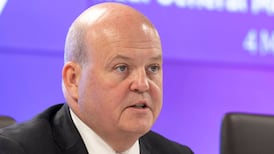The private equity firm CapVest, led by Irishman Seamus Fitzpatrick, has acquired the German drugmaker Stada at about a €10 billion valuation from its previous owners, marking one of Europe’s largest healthcare transactions this year.
Stada, which sells generic drugs and consumer health products, was delisted from the Frankfurt stock exchange in 2017 by the buyout investors Bain Capital and Cinven for €5.3 billion.
The two firms had been exploring options for Stada including an initial public offering, and will retain a minority stake in the company following CapVest’s takeover, according to a statement on Monday.
Stada is valued at about €10 billion in the deal, according to two people familiar with the matter.
READ MORE
The transaction marks one of the largest healthcare deals in Europe this year, and one of the biggest takeovers of an asset between private equity owners.
Buyout groups have struggled to offload larger holdings amid a slowdown in acquisitions and initial public offerings. Stada is the second Frankfurt listing candidate this year, after lender OLB, to abandon plans for a flotation in favour of a sale.
Stada’s chief executive Peter Goldschmidt told the Financial Times earlier this year that the diversity of the company’s more than 25,000-product portfolio had bolstered performance despite challenges, including the pandemic, inflation and the Russia-Ukraine war. Stada spun off its Russia business in 2023.
About 40 per cent of its revenues come from consumer health, which includes cough and cold products, dermatology, painkillers, vitamins and minerals. Stada’s brands include Nizoral shampoo, Cetraben skin cream and Zoflora antibacterial spray.
Generics contribute another 40 per cent of sales, with speciality pharmaceuticals contributing the remainder.
Stada’s revenues rose 9 per cent year on year to €4.1 billion in 2024, while adjusted earnings before interest, tax, depreciation and amortisation were €886mn, up 11 per cent on the previous year, according to unaudited accounts.
The deal is expected to close in the first half of next year. --Copyright The Financial Times Limited 2025













